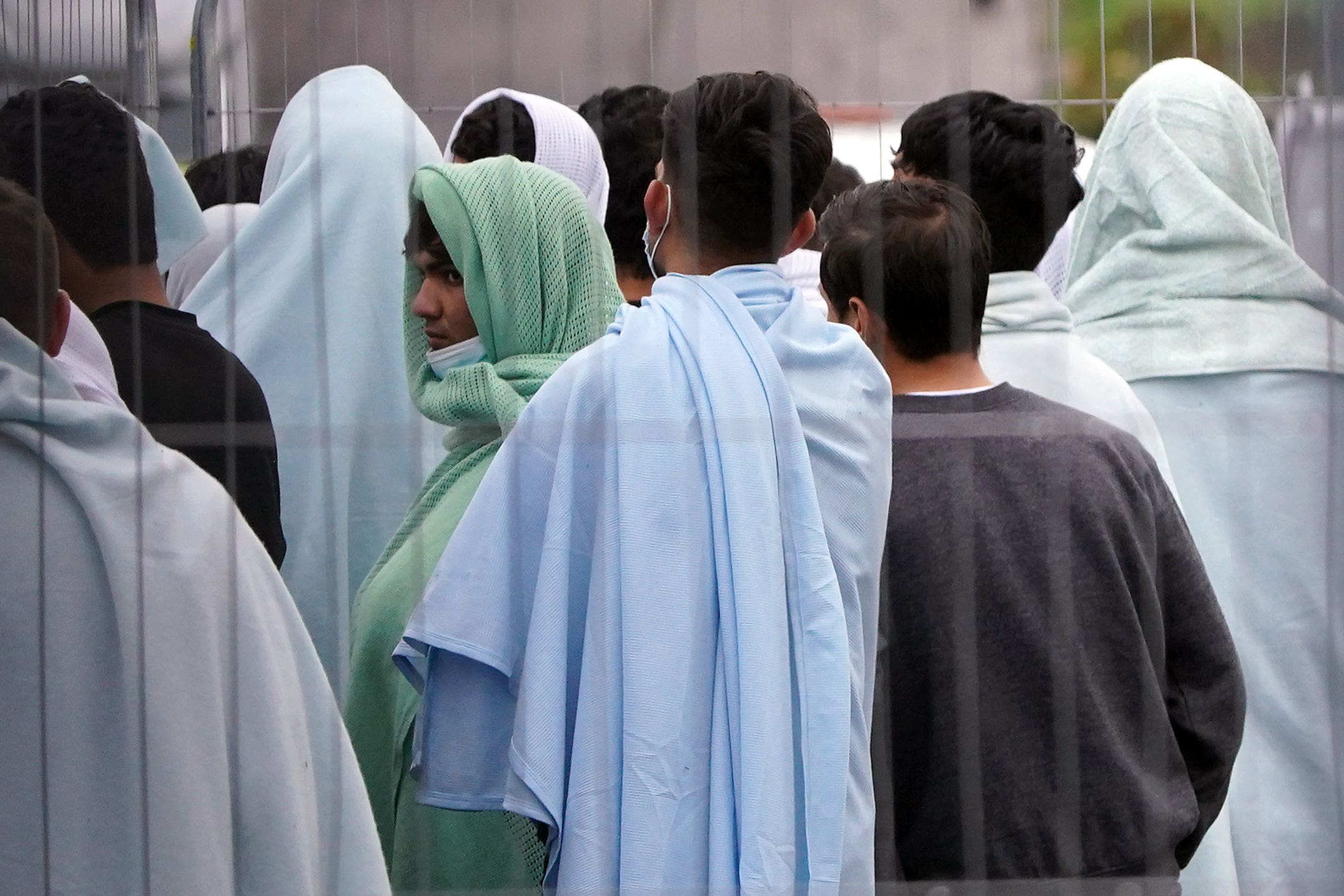Migrants at Manston to be vaccinated against diphtheria following spike in cases
The UK Health Security Agency said it is moving with the Home Office to vaccinate migrants at the Kent site against the disease.

Migrants at the Manston processing centre will be vaccinated against diphtheria after dozens of cases of the highly contagious disease were confirmed in England, health authorities have said.
Immigration minister Robert Jenrick said on November 1 that just four cases had been identified at the site in Kent, but insisted those involved had arrived at Manston already infected.
He said reports of diphtheria, MRSA and scabies incidents at the centre had been “exaggerated”.
But the UK Health Security Agency (UKHSA) said it is now moving with the Home Office to vaccinate migrants at the centre following a spike in infections.
We recommend that diphtheria vaccination and antibiotics are offered to people at the centre and all those who have moved on recently
The UKHSA revealed on Friday that 39 diphtheria cases had been identified in asylum seekers in England in 2022, as of November 10, warning accommodation settings should be considered “high-risk for infectious diseases”.
The Government agency said in many cases the illness had been contracted abroad and carried to the UK, stressing the need for action to “minimise the risk of further transmission”.
Dr Gayatri Amirthalingam, the UKHSA’s deputy director of public health programmes, said work is ongoing with the Home Office to roll out vaccines and antibiotics at Manston.
“The UKHSA has been working closely with the Home Office at the Manston reception centre where there have been a number of cases of diphtheria and other infections,” she said.
“We recommend that diphtheria vaccination and antibiotics are offered to people at the centre and all those who have moved on recently.
“This is currently being operationalised and we are working with the Home Office and the NHS to make this happen.”
The Home Office confirmed it was working alongside the UKHSA and NHS to provide vaccines against the disease, but stressed the number of migrants affected at Manston was “very small”.
In guidance for cases and outbreaks in asylum seeker accommodation settings, published on Friday, the UKHSA said its incident management team had recommended “mass antibiotic prophylaxis and mass vaccination”.
This was due to a “high prevalence” of toxigenic diphtheria infection in high volume reception settings where individual case and contact management is not possible, it said.
The treatment has been recommended for asylum seekers arriving at reception centres after October 31 and before December 12, including those who have already been dispatched to hotels, with young children and their families prioritised.
A national briefing has also been sent to NHS staff to “highlight the importance of early diagnosis and prompt treatment of suspected cases”.
“In light of the increase in cases of diphtheria and the challenges of contact tracing in asylum seeker accommodation settings, it is important additional measures are put in place to quickly identify suspected cases and minimise the risk of further transmission,” the guidance said.
A Home Office spokesman said: “We are aware of a very small number of cases of diphtheria reported at Manston. Full medical guidance and protocols have been followed.
“We take both the welfare of those in our care and our wider public health responsibilities extremely seriously.
“As such, we will continue to work closely with the NHS and UK Health Security Agency to support the individuals affected and limit transmission of the infection, including providing diphtheria vaccines.”
Bookmark popover
Removed from bookmarks